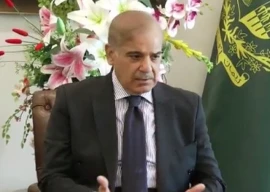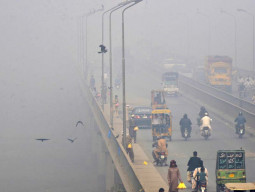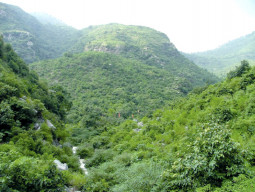
Caretaker Prime Minister Nasirul Mulk was told this on Tuesday during a briefing on water resources at the Prime Minister Office in view of reports that serious water shortage would hit Pakistan in the times to come.
A press release from the PM Office said Secretary Water Resources Shamail Ahmed Khawaja briefed the PM about key policy objectives and strategic priorities included in the National Water Policy 2018.
The secretary also made a presentation on water resource availability, its utilisation and various issues impacting the effective management of surface as well as ground water resources.
Mulk appreciated the formulation of the first-ever National Water Policy and setting up of strategic priorities for the future.
“Underscoring the need for putting in place an efficient water resource management system, the prime minister observed that leveraging technology and adoption of efficient means of conservation and utilisation was essential to ensure availability of water for a rapidly increasing population,” said the press release.
The interim PM also directed the Ministry of Water Resources to work out a comprehensive plan for addressing water-related issues in the country. Minister for Water Resources Ali Zafar, Secretary to PM Suhail Aamir and Federal Flood Commission Chairman Ahmed Kamal attended the briefing.
Recently, reports have been doing the rounds on social, electronic and print media that Pakistan would face absolute water shortage by 2025. This has given rise to demands for the construction of new dams, amidst growing calls to forge political consensus to address controversies surrounding Kalabagh dam.
Pakistan ranks third among countries facing water shortage
A few days back, Chief Justice of Pakistan (CJP) Mian Saqib Nisar also took suo motu notice of the water crisis in Pakistan on a petition seeking referendum on the construction of Kalabagh dam but declared that Supreme Court would not intervene or give any ruling in the matter. However, the top court said it could play a supervisory role in preparing recommendations to the government to tackle the water crisis.
On account of rapid rise in the temperature, power outages have increased manifolds, apparently undermining the former Pakistan Muslim League Nawaz (PML-N) government’s claims of not only ending the load-shedding but also producing surplus electricity of up to 3,000MW.
An official source told The Express Tribune that the rise in temperature would improve the water situation in the country that would eventually improve hydel power generation to meet the power shortage.
Tube wells running dry: Water crisis in RCB and CCB reaching alarming levels
“Heavy precipitation and melting of glacier waters are two main reasons which contribute to improving water situation that eventually help mitigate the power crisis. But waiting for nature’s help and divine intervention is n solution,” he said.
The official believes that in order to get rid of the water and power crises, practicable policies have to be introduced, like construction of dams to meet water scarcity in the long run.
CEC, PM discuss elections
Chief Election Commissioner Justice (retd) Sardar Muhammad Raza called on the caretaker PM at his office on Tuesday. Matter related to the forthcoming general elections came under discussion during the meeting.
Water scarcity: Muslim countries feared to run dry by 2025
The interim PM reiterated that the caretaker government is “firmly committed to providing all possible assistance to the Election Commission towards holding free, fair and peaceful elections as per the schedule”, an official press release said.























COMMENTS
Comments are moderated and generally will be posted if they are on-topic and not abusive.
For more information, please see our Comments FAQ